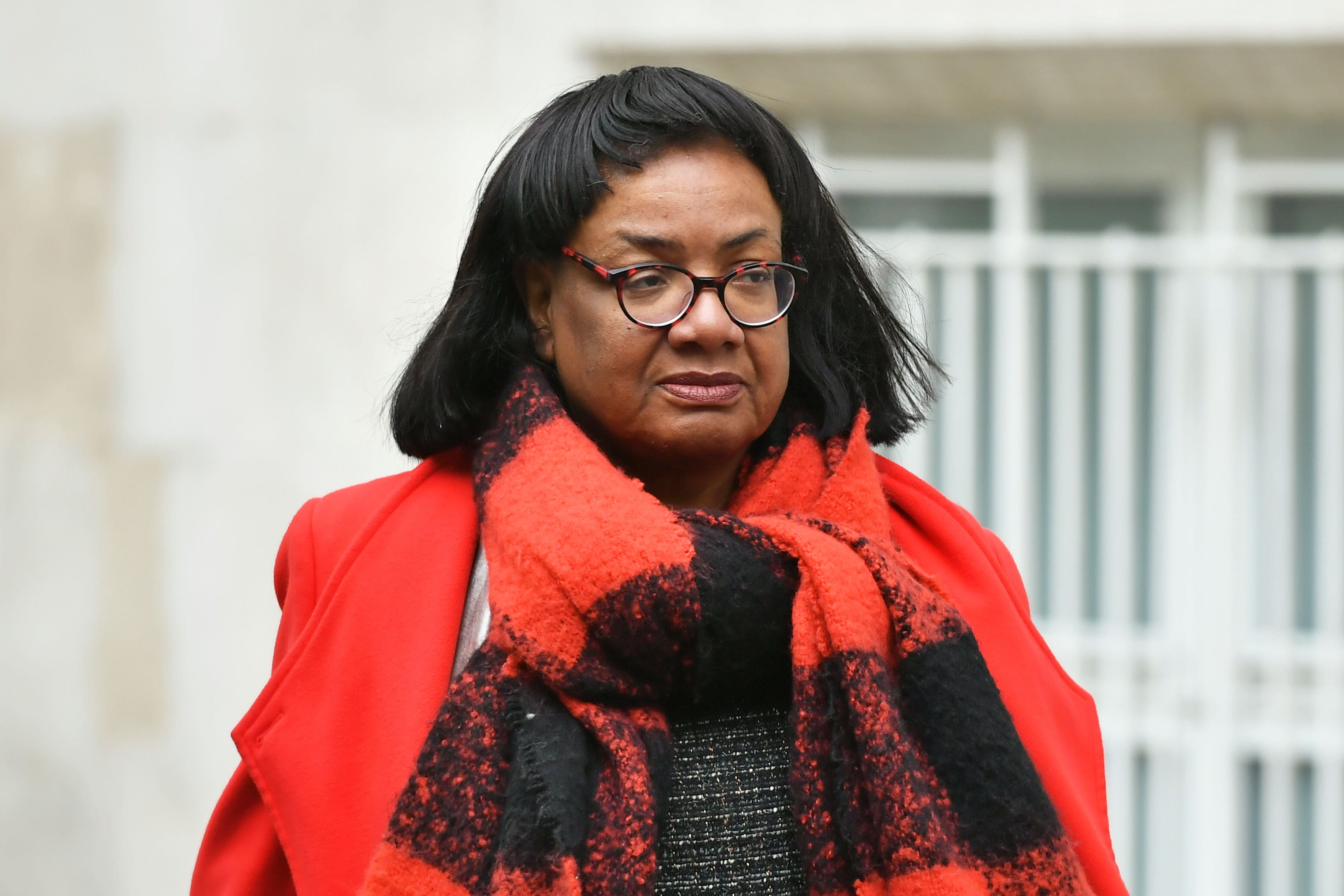Diane Abbott: the left-wing rebel who was part of the ‘awkward squad’
The east London MP was the first black woman to be elected to Parliament.

For more than 40 years, Diane Abbott has been a totemic figure on the Labour left – and a thorn in the side of successive party leaders.
In 1987, she made history when she was elected as Britain’s first black woman MP – and in the decades that followed she has rarely been far from controversy.
Over the years, she has been a passionate and outspoken supporter of causes ranging from women’s rights and racism to working-class issues.
During the New Labour years, she was part of the “awkward squad” of serial rebels – defying the whips to vote against Tony Blair on civil rights, university tuition fees and the Iraq War.
On more than one occasion, her view on race have landed her in hot water – she was forced to apologise when she suggested “blonde, blue-eyed Finnish girls” in her local hospital were unsuitable as nurses because they had “never met a black person before”.
Having spent most of her career on the back benches, there was surprise when in 2010 she emerged as a challenger for the Labour leadership, only to be eliminated in the first round of voting.
When, five years later, her fellow left-winger – and former lover – Jeremy Corbyn succeeded where she had failed, he elevated her to the shadow cabinet, promoting her to the key post of shadow home secretary the following year.
Her newfound prominence saw her subjected to unprecedented levels of racist and sexist abuse on social media – during the 2017 general election campaign it was estimated that she received 10 times more abuse than any other candidate.
Despite her reputation as an “identikit leftie”, she nevertheless formed an unlikely broadcast pairing with former Tory MP Michael Portillo – with whom she once appeared in a school production of Macbeth – appearing together on the BBC’s late night political show, This Week.
Born in 1953, the daughter of Jamaican immigrants, Ms Abbott went to Harrow County School for Girls, where she was the only black pupil, winning a place to read history at Newnham College Cambridge, where she was again the only black student.
After graduating, she became an administrative trainee at the Home Office, then followed spells as a race relations officer at the National Council for Civil Liberties and a researcher and reporter at Thames Television.
She was also becoming increasingly active in Labour politics, winning election to Westminster Council in 1982 and campaigning alongside Bernie Grant, Paul Boateng and Keith Vaz for greater ethnic minority representation.
Mr Corbyn was another ally from that time – they had a brief affair in the 1970s following the break up of his first marriage, travelling together by motorbike to communist East Germany.
Like Mr Corbyn, in the 1980s she voiced support for the IRA and the republican cause in Ireland, saying every defeat for the British state was “a victory for all of us”.
Asked about her comments 30 years later, when she was seeking to become home secretary, she replied: “I’ve moved on.”
As MP for the east London seat of Hackney North and Stoke Newington, her championing of left-wing causes meant she was never a likely candidate for the front benches – particularly after the ascendance of Mr Blair and New Labour in the 1990s.
She was among the harsher critics of Harriet Harman for sending her children to a selective school, only to face charges of hypocrisy when it later emerged that she had sent her own son to private school.
She defended her choice, saying she was fearful that as a black boy he could be “lost to the world of gangs” if he went to the wrong school.
Following the resignation of Gordon Brown in the wake of Labour’s 2010 general election defeat, she announced she was standing to replace him as party leader, saying she wanted to challenge the all-white line-up.
Despite failing to make it past the first round of voting, she was rewarded by the eventual winner, Ed Miliband, who gave her her first frontbench role as shadow public health minister, only to sack her three years later.
As Mr Corbyn’s shadow home secretary, she endured a torrid time in the 2017 general election as she struggled to remember details of the party’s policies during a series of “car crash” interviews.
She subsequently disclosed that she had been diagnosed with type 2 diabetes in 2015 and that her blood sugar levels had been “out of control” under the pressures of the campaign.
Following Sir Keir Starmer’s election as Labour leader in 2020, she announced that she was standing down and returning to the back benches.
In 2023, she had the Labour whip suspended after she wrote a letter to The Observer saying Irish people, Jewish people and Travellers were not subject to racism in the same way as black people.
She subsequently apologised, claiming the letter had been an initial draft which was sent in error, while complaining that as a left winger and a black woman she would not get a fair hearing from the leadership.
Earlier this year, it emerged that she had been the subject of abusive comments by the Tory donor Frank Hester – who was reported to have said she made him “want to hate all black women” and that “she should be shot”.
The comments, which were widely condemned, led to a wave of sympathy with Labour deputy leader Angela Rayner and her old adversary Ms Harman among those expressing the hope she would have the whip restored.
Bookmark popover
Removed from bookmarks